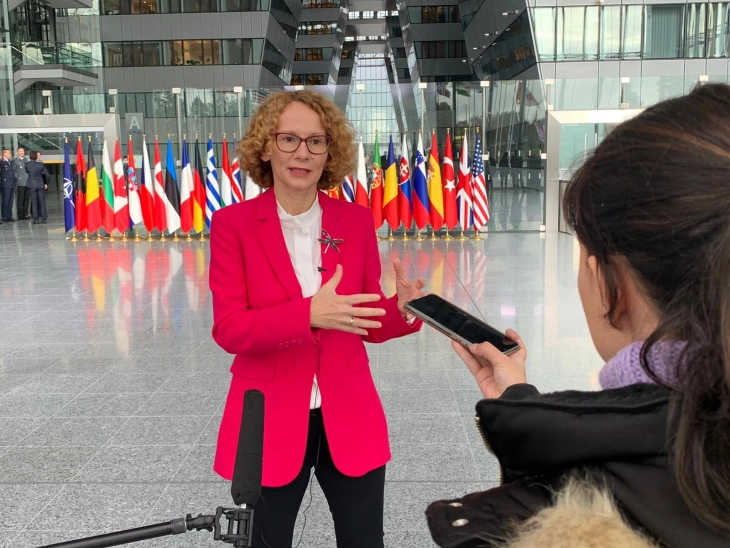Taliban are not given carte blanche, says Minister Shekerinska

Brussels, 21 October 2021 (MIA) – NATO defence ministers will be discussing Afghanistan and the lessons learned from the 20-year mission after the US withdrew its troops and the Taliban returned to power, Defence Minister Radmila Shekerinska stated on Thursday in Brussels, where she will be attending the North Atlantic Council meeting, the first one in-person since the country joined the Alliance.
Asked whether NATO should recognize the Taliban as a legitimate party, Shekerinska said it is up to them to prove themselves.
“The current government in Afghanistan should demonstrate what it is advocating for, how it plans to govern the country and the response from the international community will depend on how they will act. They are not given carte blanche,” the Minister stated speaking to MIA’s correspondent in Brussels.
According to her, NATO has proven successful in preventing the risks of terrorist attacks in its member countries, which was the main reason why it had deployed a mission in Afghanistan.
What should be also discussed in addition to the pullout, Shekerinska said, is the fact that NATO has managed to evacuate over 130,000 people from Afghanistan, who had assisted the Alliance in the past 20 years.
North Macedonia once again provided itself a reliable ally of NATO after joining the mission to offer shelter to Afghan refugees.
“We also provided medical assistance to refugees accommodated in Kosovo in order to help the people who cooperated with our troops,” the Minister stated.
Shekerinska announced that North Macedonia in 2022 will join the Enhanced Forward Presence (EFP), a NATO-allied forward-deployed defense and deterrence military force in Central and Northern Europe.
“We believe it is a good chance for our armed forces to contribute and also to develop their interoperability capacities with NATO members,” she said adding that Macedonian troops will join Slovenian soldiers under Canadian command.
At the two-day meeting, NATO defence ministers will adopt decisions to strengthen the security of the Alliance and collective defence, and discuss several topics including geostrategic challenges, as well as cooperation with the EU and partners.







